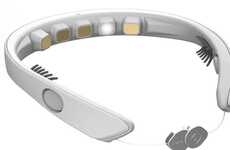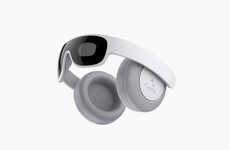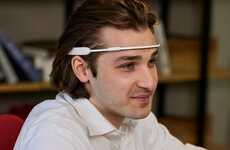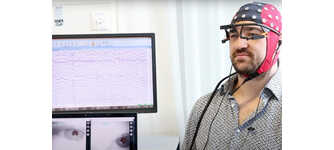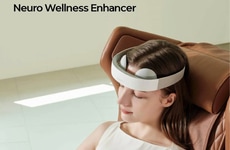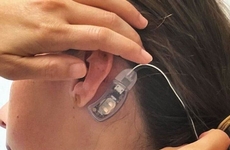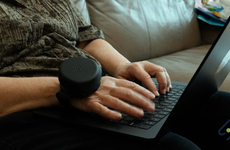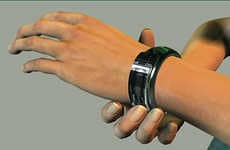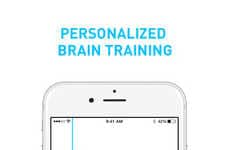
The STIMband Helps Reduce Symptoms of Parkinson's Disease
Rahul Kalvapalle — June 22, 2015 — Tech
References: hub.jhu.edu & gizmag
The STIMband is a headband, developed by a group of graduate students at Johns Hopkins University in Baltimore, that is designed to provide non-invasive brain stimulation to people suffering from Parkinson's disease. The headwear helps reduce the severity of symptoms without requiring a visit to a hospital.
The current prototype band can work for up to 20 minutes per day. It is worn on the head much like a baseball cap and is fitted with an elastic band that stretches to fit the wearer's head.
Parkinson's disease affects as many as a million people in the United States of America alone and around seven million worldwide. The disease cannot be cured, with symptoms worsening over time. The STIMband may not cure the disease, but by relieving symptoms, it can enhance the quality of life of Parkinson's disease sufferers.
The current prototype band can work for up to 20 minutes per day. It is worn on the head much like a baseball cap and is fitted with an elastic band that stretches to fit the wearer's head.
Parkinson's disease affects as many as a million people in the United States of America alone and around seven million worldwide. The disease cannot be cured, with symptoms worsening over time. The STIMband may not cure the disease, but by relieving symptoms, it can enhance the quality of life of Parkinson's disease sufferers.
Trend Themes
1. Non-invasive Brain Stimulation - Developing non-invasive brain stimulation technologies can provide relief and improve the quality of life for patients with neurological disorders like Parkinson's disease.
2. Wearable Medical Devices - The development of wearable medical devices, such as the STIMband headwear, allows for convenient and accessible treatment options for patients with Parkinson's disease.
3. Personalized Healthcare Solutions - Creating personalized healthcare solutions like the STIMband headwear can address the unique needs of individuals suffering from Parkinson's disease and potentially other neurological conditions.
Industry Implications
1. Healthcare Technology - The healthcare technology industry can leverage non-invasive brain stimulation technologies to develop innovative solutions for various neurological disorders, including Parkinson's disease.
2. Wearable Technology - The wearable technology industry has an opportunity to expand its offerings by creating medical-grade devices like the STIMband headwear that cater to specific healthcare needs.
3. Neurology and Neurological Disorder Treatment - The field of neurology and neurological disorder treatment can explore the use of non-invasive brain stimulation technologies to develop more effective therapeutic approaches for patients with conditions such as Parkinson's disease.
3.9
Score
Popularity
Activity
Freshness

